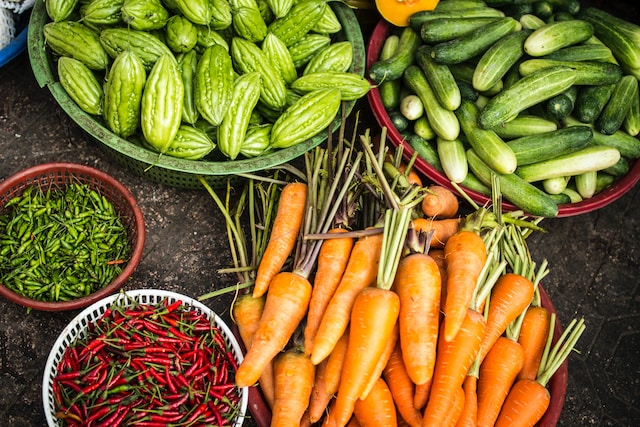Food is at the heart of our daily lives, providing nourishment, pleasure, and cultural significance. Yet, the way we produce, distribute, and consume food has profound consequences for the environment, society, and our own well-being. Food sustainability is a critical concept that addresses these interconnected challenges. In this blog post, we will explore what food sustainability means, why it matters, and how individuals and communities can contribute to a more sustainable food system.
What is Food Sustainability?
Food sustainability encompasses practices and principles that aim to meet our present food needs while ensuring that future generations can do the same. It rests on three key pillars:
Environmental Sustainability
This aspect focuses on reducing the environmental impact of food production and distribution. It seeks to conserve natural resources, minimize pollution, and protect ecosystems.
Social Sustainability
Social sustainability in food systems is about fostering equity, ensuring access to nutritious food for all, and supporting the well-being of food producers and workers throughout the supply chain.
Economic Sustainability
Economic sustainability ensures that food systems are financially viable, allowing producers to earn a fair income and communities to prosper economically.
Why Food Sustainability Matters
Environmental Stewardship
Unsustainable food practices, such as deforestation, monoculture farming, and excessive pesticide use, harm ecosystems, deplete soil quality, and contribute to climate change. Food sustainability is essential for preserving the planet’s natural resources and mitigating environmental damage.
Food Security
A sustainable food system ensures that everyone has access to enough nutritious food. With a growing global population, food security is a pressing concern. Sustainable practices can help address hunger and malnutrition.
Health and Nutrition
Sustainable diets emphasize whole, minimally processed foods that are rich in nutrients. Such diets are associated with better health outcomes and reduced rates of diet-related diseases.

Economic Resilience
Small-scale and local food systems promote economic resilience within communities. Supporting local farmers and producers can boost local economies and reduce dependence on global supply chains.
Cultural Preservation
Sustainable food systems respect and preserve cultural traditions related to food production and consumption. This helps maintain cultural diversity and culinary heritage.
How to Promote Food Sustainability
Individuals, communities, and organizations can take action to promote food sustainability:
Reduce Food Waste
Start by minimizing food waste at home through meal planning, proper storage, and composting. Encourage businesses to do the same.
Support Local Agriculture
Buy locally grown and produced food to reduce food miles and support local economies.
Choose Sustainable Products
Look for food products with eco-friendly certifications, such as organic, fair trade, and Rainforest Alliance.
Embrace Plant-Based Eating
Reducing meat and dairy consumption can lower the carbon footprint of your diet. Experiment with plant-based meals and enjoy the benefits of a more sustainable diet.
Advocate for Policy Changes
Support policies that promote sustainable agriculture, reduce food waste and ensure equitable access to food.
Educate Yourself and Others
Stay informed about food sustainability issues and share knowledge with your community. Engage in discussions about food choices and their impact.
Conclusion
Food sustainability is not a distant goal but a collective responsibility that we can work towards every day. By adopting sustainable practices in our food choices and advocating for systemic changes, we can contribute to a world where food nourishes both people and the planet. Food is more than sustenance; it’s a powerful force for positive change when approached with sustainability in mind.

